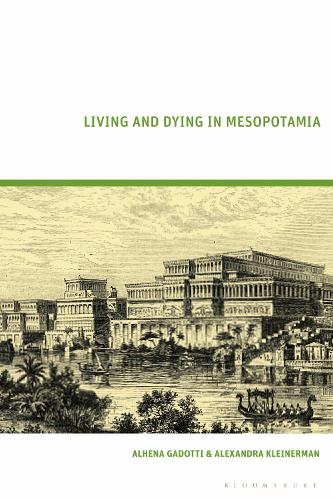
Living and Dying in Mesopotamia
(Hardback)
Publishing Details
Living and Dying in Mesopotamia
By (Author) Alhena Gadotti
By (author) Alexandra Kleinerman
Bloomsbury Publishing PLC
Bloomsbury Academic
14th November 2024
United Kingdom
Classifications
Professional and Scholarly
Non Fiction
The afterlife, reincarnation and past lives
392.0935
Physical Properties
Hardback
312
Width 164mm, Height 238mm, Spine 14mm
612g
Description
To achieve a better understanding of the everyday lives of the Mesopotamians, Alhena Gadotti and Alexandra Kleinerman interrogate the relationships between life, death and the afterlife in this ancient society. By focusing on the beliefs and rituals surrounding life and death, illuminated through case studies and primary evidence, including letters written by both women and men, the book allows readers to infiltrate the minds of the ancients and gain first-hand awareness of their passions, concerns, trials and tribulations. To achieve this, this book follows the life cycle of the people of the Tigris and Euphrates River valleys from 3000 BCE to 300 BCE, from birth, through death and beyond. Inspired by Mesopotamian conceptions of the afterlife, which was said to mirror life, the book is divided into two parallel sections. In section one, the authors focus on life, examining topics such as the rituals surrounding birth, marriage, religion and the law. They also analyze the material evidence for everyday life, including food, clothing and entertainment, to show how people lived while alive, providing comparison for later explorations of how people 'lived' when dead. In the second half of the book, the authors concentrate on death, examining the common causes of death, death rituals and the Mesopotamian views of the netherworld, its gods and its inhabitants. The book includes discussions on womens perceptions of sexuality as illustrated by erotic poetry, concepts of gender fluidity both in life and death as evidenced by the epigraphic data, and an exploration of the problematic concept of dying gods. Overall, this book shows daily life in Mesopotamia as a multifaceted subject affected by time, space, location, socioeconomics, and gender, and demonstrates how life and death experiences continually changed and developed over nearly three millennia of Mesopotamian history.
Author Bio
Alhena Gadotti is Professor of History at Towson University, USA. Alexandra Kleinerman is Faculty Research Associate at Cornell University, USA
